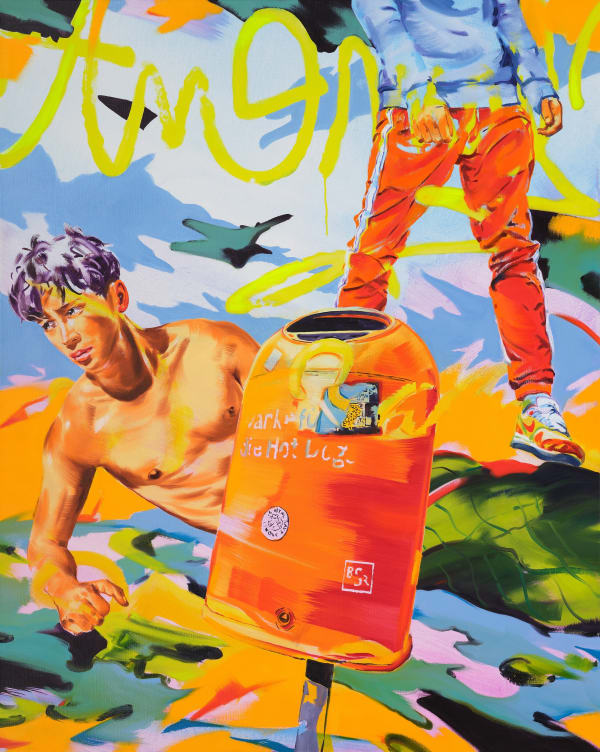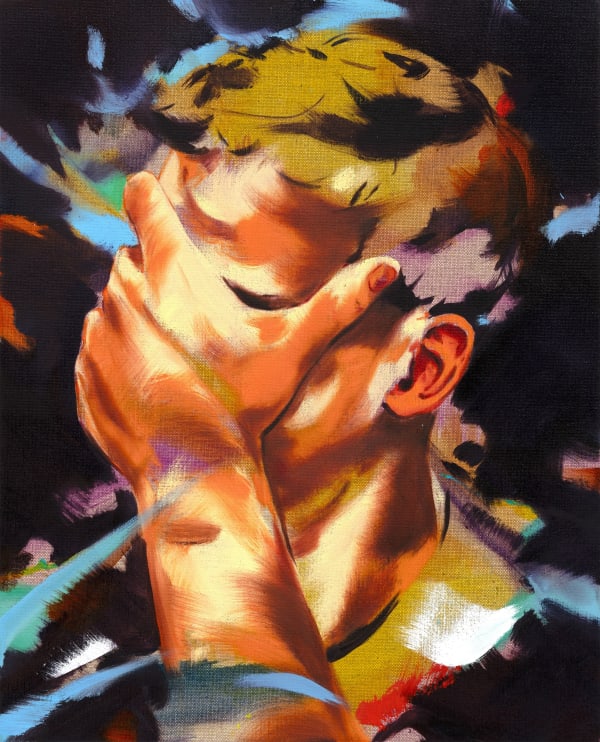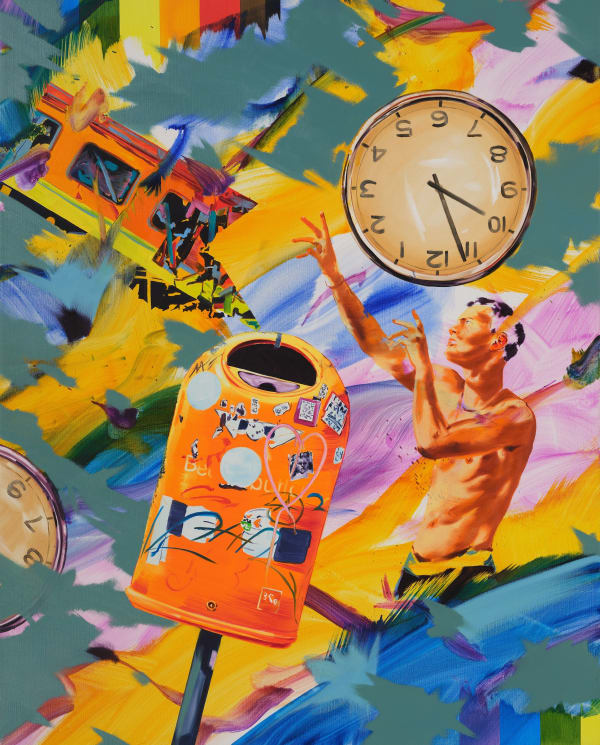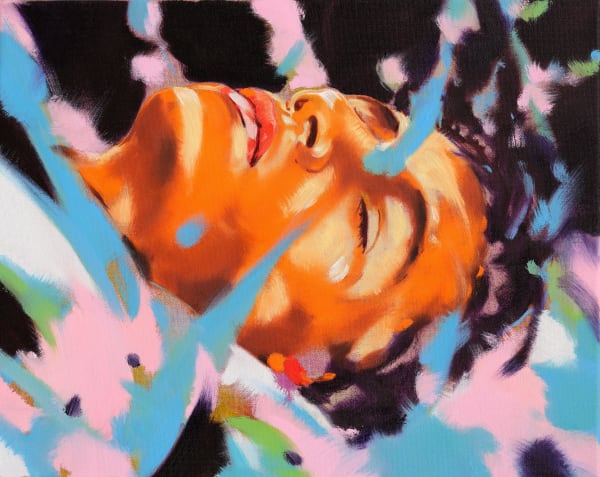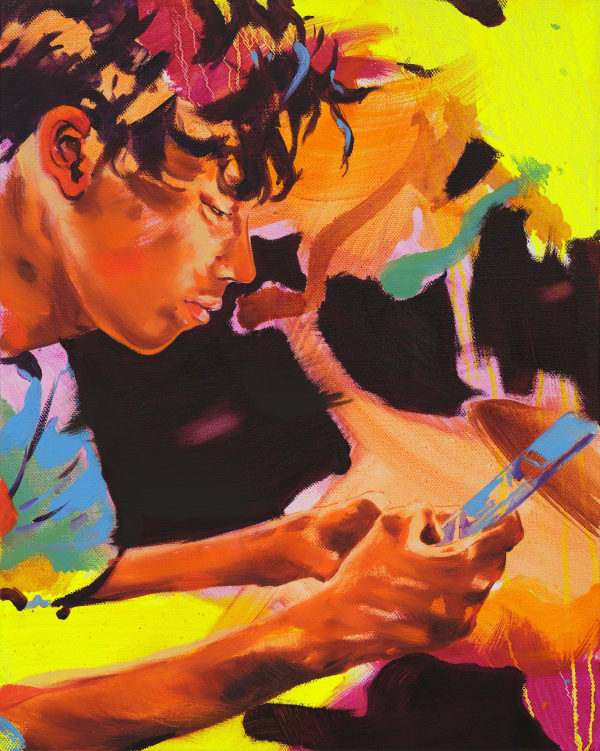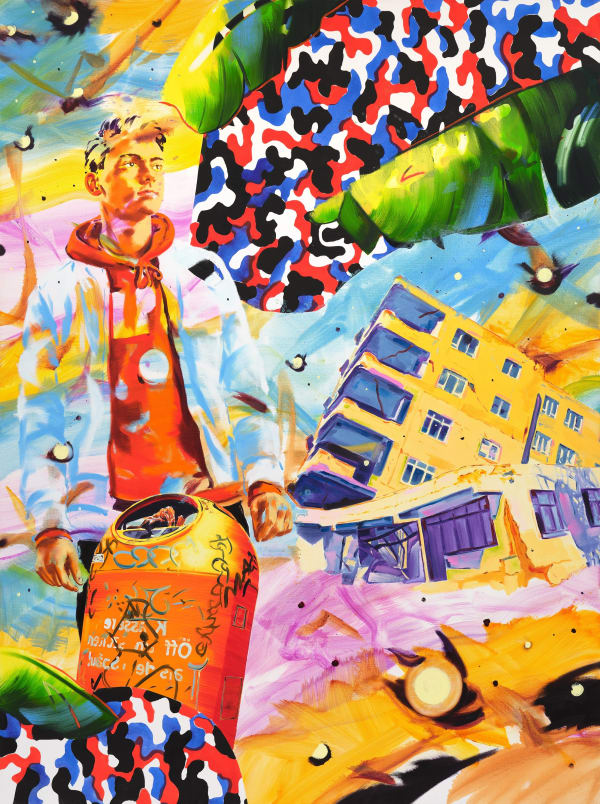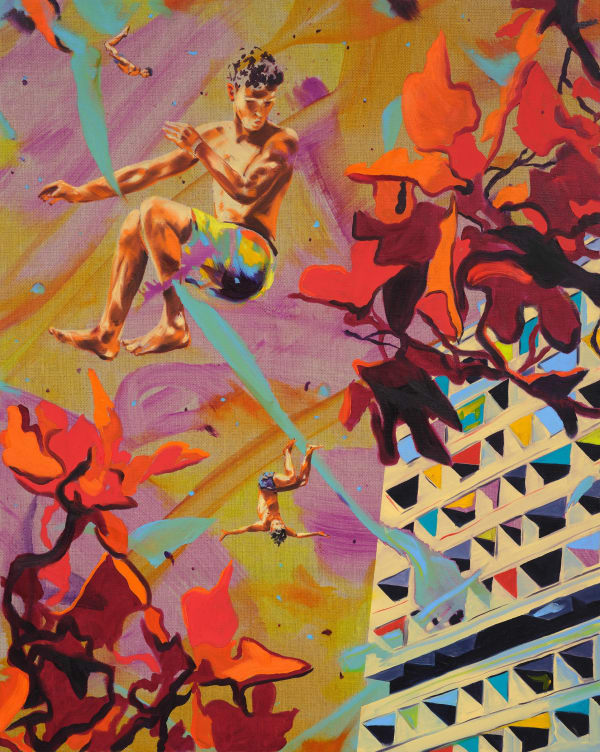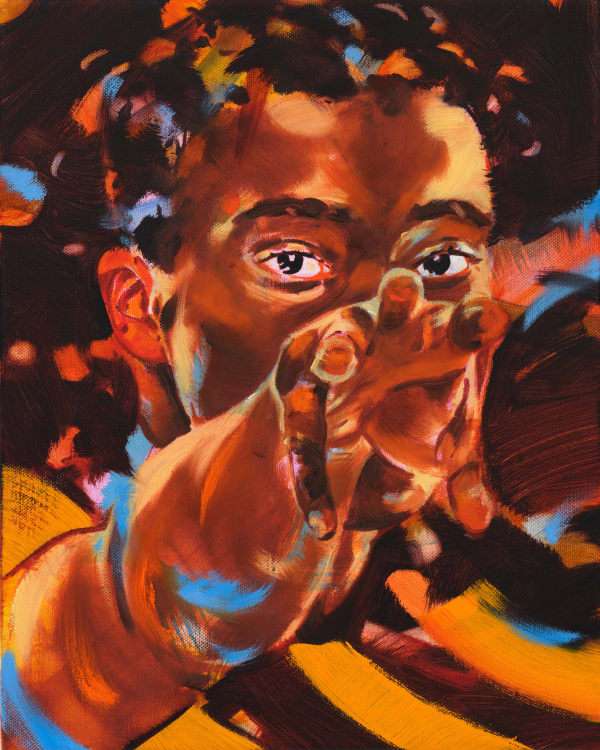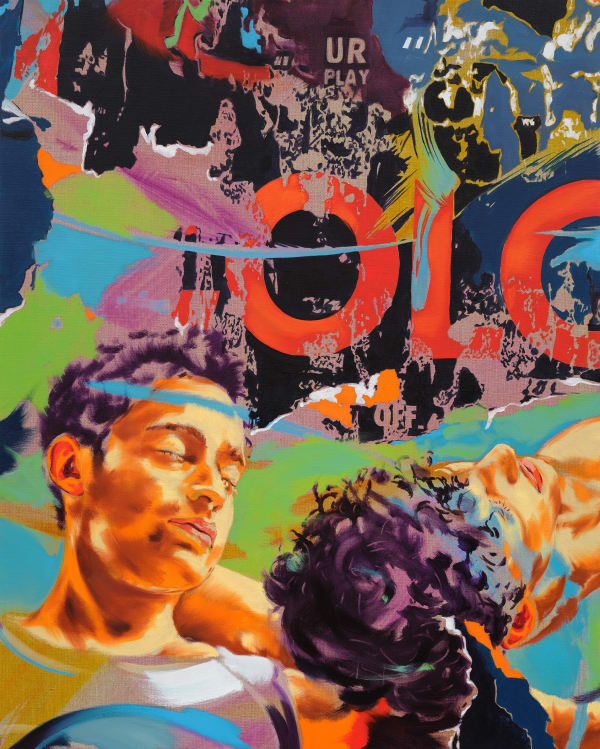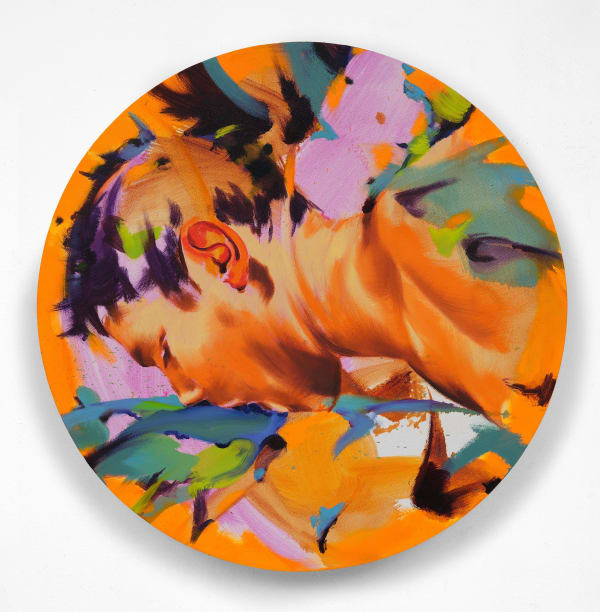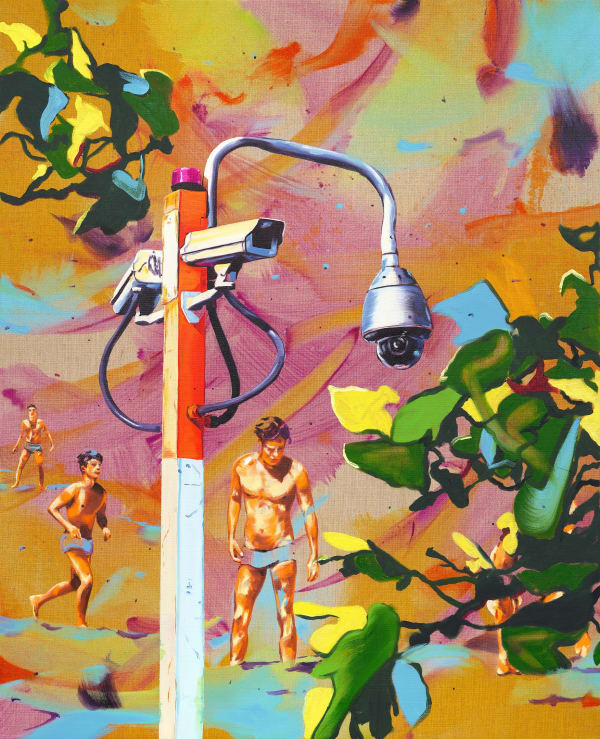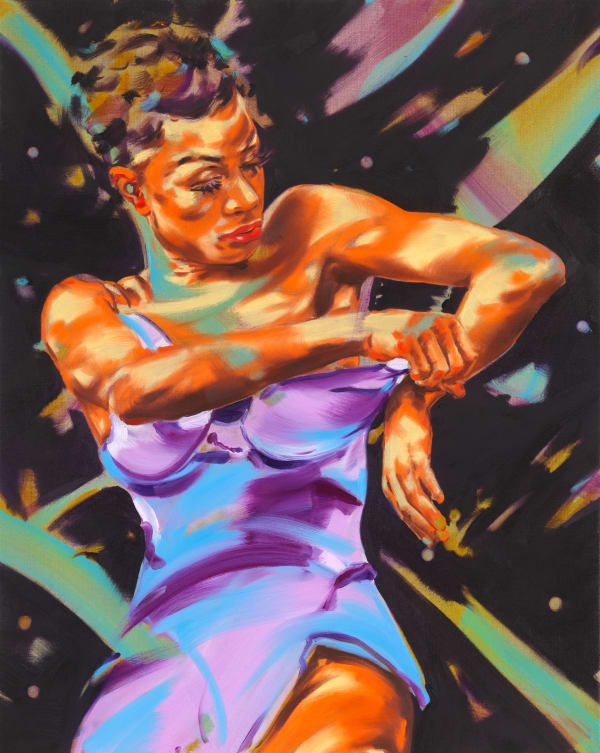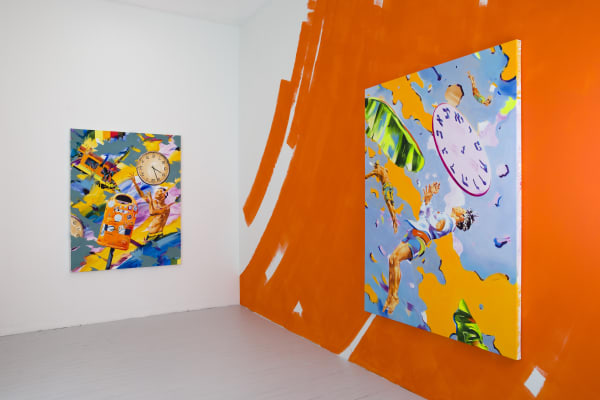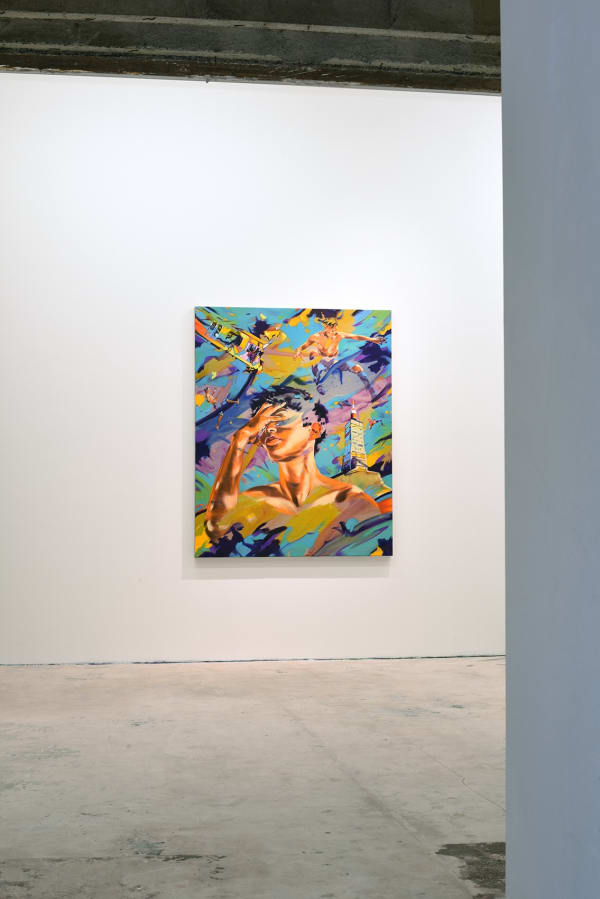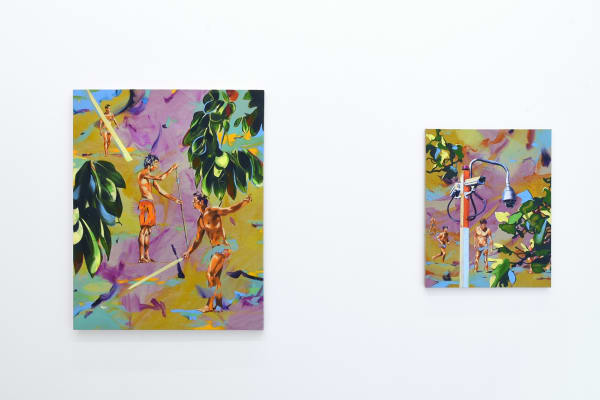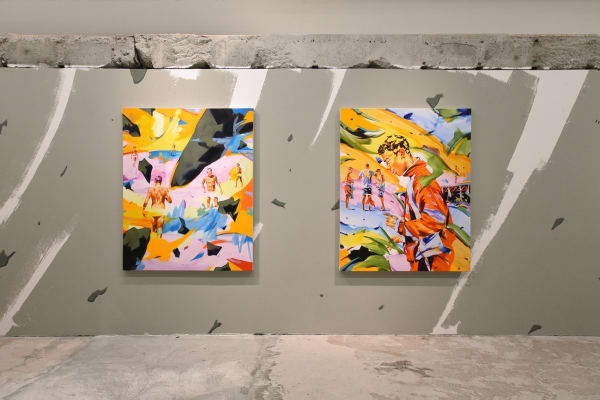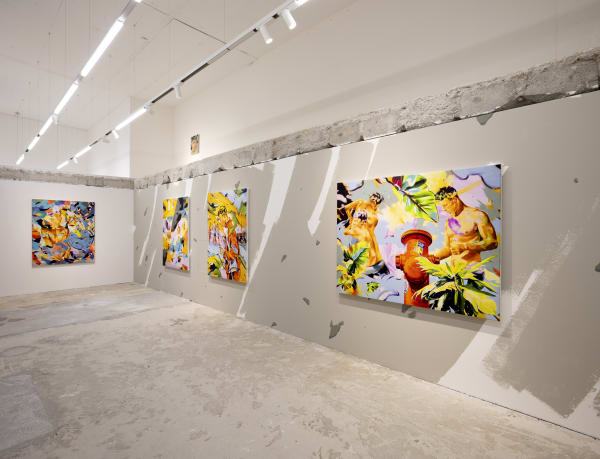Passengers: Norbert Bisky
Passengers
Text by Gianluigi Ricuperati
Fabienne Levy Gallery is pleased to announce the exhibition “Passengers” by Norbert Bisky (Leipzig, 1970), opening on November 27, 2024, and running until February 8, 2025, simultaneously at the two gallery’s venues in Geneva and Lausanne. “Passengers” is the renowned German artist’s second solo exhibition with the gallery.
For this ambitious and visionary project, the artist presents over 20 new works—primarily oil on canvas, alongside some cutouts on mirrors and two lightboxes—created over the past year and inspired by the broad and evocative concept of ‘Passengers.’ Who are the ‘passengers’ portrayed in these compelling and multilayered canvases, where symbols and the communicative power of avant-garde agitprop posters converge with the sensual dynamism characteristic of Bisky’s depictions of bodies? These bodies fall and walk; they act in the world, exposed to the light of action - the glorious sun of youth and life - or they lose themselves in the intricate web of objects and symbols that make up our perceived reality.
In this new series, Bisky—once a student of Georg Baselitz and now one of the most admired figures of his generation, with a unique ability to engage subsequent generations—explores the complexities of post-pandemic life. The title “Passengers” holds a dual meaning: on one hand, it reflects the resumption of travel after lockdowns; on the other, it represents the metaphysical journey we all partake in, carried through space and time by uncontrollable forces such as history and war—powerful upheavals that define our era.
Within these new works, figures appear in a collage-like juxtaposition of natural, cultural, architectural, and psychological elements. We see young men in free fall, symbolizing the loss of support structures—a recurring theme in Bisky’s work—surrounded by clocks, smartphones, familiar Berlin landmarks such as public dustbins, and catastrophic scenes like climate-related disasters or collapsing towers. Through abstract painterly spaces, the artist evokes sensations of unsustainable acceleration and a distrust of any unified understanding of reality.
As always, Bisky’s compositions blend layers of abstraction with distinct figuration. In this modern-day ‘anthropological fable’ told through images, there are two types of humans: the passengers and the sleepers. The latter represent dreamers whose journeys lead them inward, into the unconscious and the repressed. The passengers, active in the world and navigating its pathways, are often depicted alongside devices of control, such as surveillance cameras or cell phones.
Thus, in this new sequence of works, which carries the conceptual and poetic coherence of this exhibition, Bisky stages scenes that, as the artist has stated, “try to find ways to portray violence, but we live in a society where only fragments of the violence generated by society itself are seen.” Bisky’s aggregated and disaggregated bodies, often nude, appear driven by an ‘inner rhythm’ that gives rise to Sleep (the sleepers, with the circadian rhythms of rest) or Motion (the passengers).
Elias Canetti, one of the greatest writers of the 20th century, Nobel prize laureate, uses these words to define rhythm in his narrative-anthropological masterpiece Crowds and Power (1960): “Rhythm is originally the rhythm of the feet. Every person walks, and since we walk on two legs, alternately touching the ground with our feet, and since we move forward only by repeatedly touching the ground, a rhythmic sound emerges, regardless of whether it is intentional or not.” This kind of rhythm seems to animate each figure or object in Bisky’s new works, which are as figuratively compelling as they are thought-provoking. Beneath the striking surface of their painterly qualities, a deep undercurrent of ideas, stories, and impressions addresses the major challenges of our time, establishing Bisky as one of the most committed and powerful voices in contemporary European art.
-
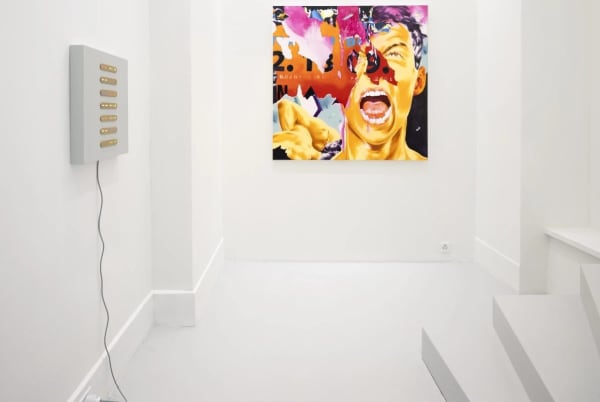
LAST CALL FOR PASSENGERS
Ambre Oggier, Go Out! Magazine, February 8, 2025 -

15 expos pour passer l’hiver et même plus
En attendant Vallotton (Lausanne, Vevey), Tinguely (Genève) ou Bacon (Martigny), voilà un choix où la couleur a du sens.Florence Millioud, 24 Heures, December 28, 2024 -
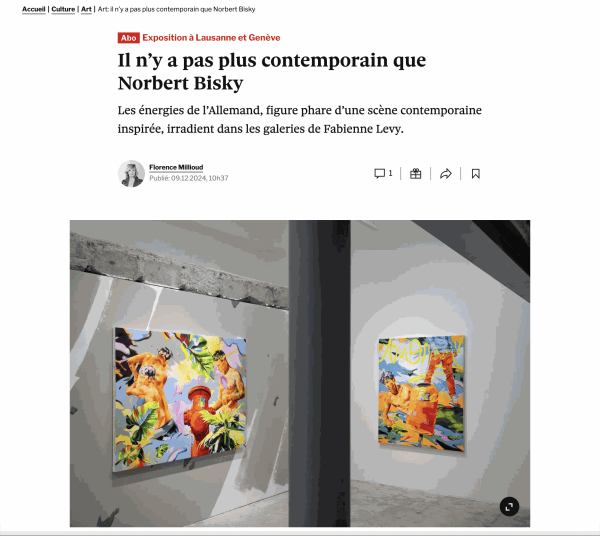
Il n'y a pas plus contemporain que Norbert Bisky
Les énergies de l’Allemand, figure phare d’une scène contemporaine inspirée, irradient dans les galeries de Fabienne Levy.Florence Milloud, 24 Heures, December 9, 2024 -
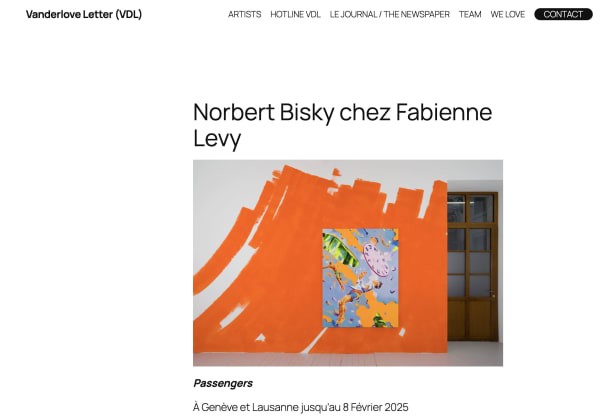
Norbert Bisky chez Fabienne Levy
Amacker Alexandre, Vanderloveletter, December 6, 2024

